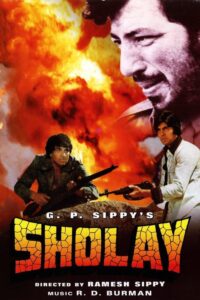Nothing speaks nostalgia and cozy nights at home like an episode of Murder She Wrote. Created for the CBS television network in 1984, Murder, She Wrote is more than the usual fare from 1990s television viewing.
Why are so many viewers, often Millennials and Gen Z, returning to this series in recent days? Is it the charm of a fictional town in coastal Maine, the classic whodunit, or the enigmatic warmth of the show’s leading lady, Jessica Fletcher? After all, would Murder She Wrote have succeeded without the talent and perception of Angela Lansbury?
Perhaps these demographics – no people – the upcoming generations, are searching for something more than mere binge-watching.
Cozy Joys
Murder, She Wrote entered the living rooms and dens of many Americans, remaining a delightful part of the domestic scene for over a decade. Families came together. The smell of toasty popcorn permeated the room. The tang of Root Beer, or another family-friendly beverage, lingered on the tongue.
With the bustle and uncertainty of our world, the concept of hygge (a Scandinavian ideal of conviviality and well-being) has made huge strides. Jessica Fletcher, as portrayed by Angela Lansbury, defines the ideal of well-being in a close-knit community, living in harmony with nature along the Maine coast, and taking the time to observe the world around her. As a retired English teacher, Jessica finds fresh purpose not only as a successful writer but also in seeking justice.

Wholesome Whodunits
With a wide supporting cast, Murder She Wrote offers the spectrum of human nature as Jessica navigates each mystery. Her writing often took her far from Cabot Cove, but she always brought a fresh sense of Yankee ingenuity and grit to every problem. Viewers still acknowledge the darker side of human nature without seeing gruesome elements far too common in other crime dramas.
As one commentator, Liberty Hardy, said, “(One) delightfully silly aspect is that not only were there murders everywhere Jessica Fletcher went, but they almost always involved her family and friends.” Being related to the famous author was not for the fainthearted! However, Murder She Wrote never seemed to take itself too seriously.
Every plotline has its strengths and flaws. Every life has ups and downs. Perhaps that is the key to the show’s legacy: a little quirkiness and individuality can go a long way.

Solving the Mystery
Muder She Wrote showcases the best and worst of mankind. Without fanfare or intense psychological probing, one accepts the fact that “bad guys” exist but cannot elude justice forever. Jessica saves the day not merely because she cares, but because she has absolutes. Right and wrong exist in her framework of thought; good and evil conflict, and she must stake her claim with the good.
Charm aside, the razor-keen wit and deductive skills of Jessica Fletcher are admirable to fill 60 minutes worth of a program. Yet, even Murder She Wrote fell prey to changing preferences and demographics, and the final episode aired on May 19, 1996. Murder She Wrote lives on in DVD, reruns, and books – but, most importantly, in the hearts of those who find commonality with this remarkable series. We, too, may say with Jessica, “Now I may be wrong, but frankly, I doubt it.”








